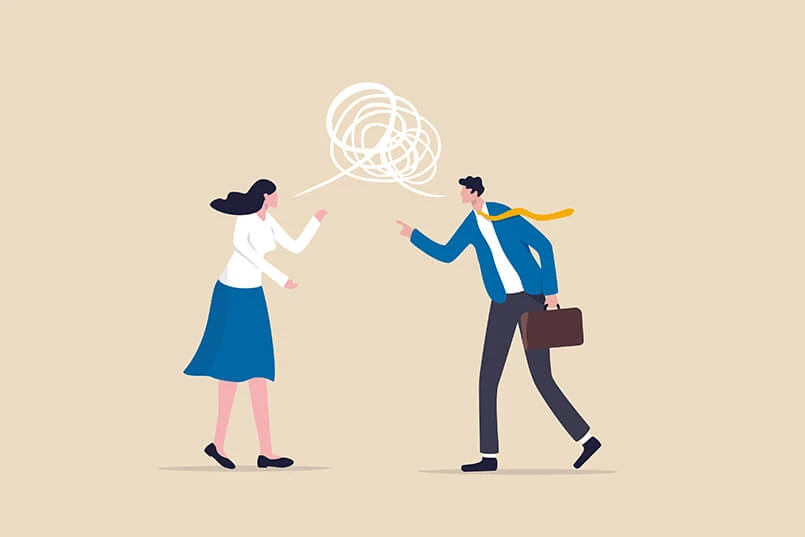Advertising is an industry of ideas. And while it is true, as recently written here in Campaign, that you cannot copyright an idea, you can own the copyright in an expression of an idea when it is permanently recorded. Well, in the two decades of managing tenders and pitches, we can count on one hand the number of agencies who have actively taken steps to protect their intellectual property. Most appear so busy creating the ideas and recording their permanent expressions for their clients that they forget there is an almost universally accepted rule of law to protect their copyright as governed by the Berne Convention, to which most nations are signatories, including the United Kingdom.
The Copyright Acts in the various markets support the Berne Convention agreement that copyright protection exists automatically with the creator at the time of creation. The UK Government supports this, stating “Copyright protects your work and stops others from using it without your permission. You get copyright protection automatically – you don’t have to apply or pay a fee. There isn’t a register of copyright works in the UK”.
What should agencies do?
The problem now is that agencies are standing up for their rights after the proverbial horse has bolted. In both recent cases after the breach has occurred, the agencies are taking to social media to correct what they see as an injustice. It has been reported that in one case the client in question is undertaking legal action against the agency for defamation.
It has been suggested agencies could ask clients to sign agreements, before participating in a pitch process, that bind the client to acknowledging that the intellectual property created in the process is owned by the agency. But this is redundant, as the law states this anyway. That’s why some clients will demand agencies sign an agreement that has the agency sign all their intellectual property rights to the client to participate in the pitch. Usually for a paltry payment that barely covers the agency’s out of pocket costs. They know that the intellectual property belongs to the creator and therefore actively ask for an assignment upfront as a condition of participation.
But while copyright protection automatically occurs at the time of the creation of the materials, it is important to inform all those receiving the materials of this fact. This is where the copyright notice is important and where advertising agencies regularly let themselves down when it comes to protection. The copyright notice consists of the words Copyright, the symbol ©, the name of the copyright owner or owners’ and the date or range of dates of creation.
While there is no legal requirement to include a copyright notice, it is strongly recommended that you include it in your work to deter copyright infringement. It clarifies to all parties that the work is subject to copyright, identifies the copyright owner, and deters infringement or plagiarism. While we do not encourage speculative creative work in the pitch process, we do see potentially millions of pounds in strategic and creative ideas given to clients without any indication that copyright exists in the work.
But is it the agency’s copyright?
To be able to copyright a created work, you must first be convinced it is original. It can be original literary, dramatic, musical, and artistic work, including illustration and photography. Or an original non-literary written work, such as software, web content and databases. It can be sound and music or film and television recordings. Or a broadcast or layout of published editions of written, dramatic, and musical works.
So, what happens if the work is not original? What if it is significantly inspired by a piece of popular culture, which itself has copyright protection? When it is simply a matter of agreeing and ensuring that the copyright notification recognises the multiple ownership in the work or recognises the components owned by other parties that would be subject to clearance. This is a discipline that anyone in the creative industries should become adept at dealing with on a regular basis.
The second consideration is the common agency use of freelance talent, particularly with pitch work. While agency employees will have assigned their intellectual property right as part of their employment contract, agencies must ensure they have the same considerations in place with freelance talent if they are to claim that they own the copyright on the works completely.
Enforcing your copyright ownership
Even if the agency places a copyright notice on all their original work, while this may reduce the incidence of what is termed in Silicon Valley as brain rape, there may still be situations where the rights are breached. In this case, the agency would then need to take legal action under copyright law. This requires engaging a lawyer and preferably one who specialises in intellectual property law
Now, while mounting a case to enforce copyright law will cost at a minimum, tens of thousands of pounds and potentially hundreds of thousands or more, this is a more professional strategy than taking to social media such as Instagram to make accusations and slander a client (which by the way may cost much more to defend before you even get to damages).
But on the positive side, if you have the copyright and the work you believe has breached your copyright, a professional intellectual property lawyer will be able to give you an assessment of the merits of your case. Ideally, if you decide to proceed, they will notify the offending party of your claim. During this phase, you may discover that another agency had the same idea at the same time as you.
Are ideas are like catching fish?
One of the reasons we recommend to clients that they do not use a speculative creative process is that depending on the brief, and due to the limitations of the process, they risk multiple agencies will come up with a similar or same idea. Not only does this defeat the purpose of differentiating agencies on their creative product, but it also creates issues in regard to copyright ownership. As we said above, it is this fear that can drive some marketers to demand agencies assign their rights upfront.
But what if two or more agencies came up with very similar ideas at the same time? The first is this is evidence that perhaps the expression of the idea is not very original in both the legal and common sense of the word. But depending on all creators being able to provide the timing of the creation, as a function of the pitch process, it is unlikely that a strong case for copyright breach could be made.
The bottom line is that if agencies, as creators of intellectual property, in the form of permanently recorded expressions of those ideas, embrace intellectual property and copyright law, rather than trial by social media, then perhaps we would have fewer examples of these breaches and instead have a more professional approach, where clients respect and agencies value the intellectual property created.




